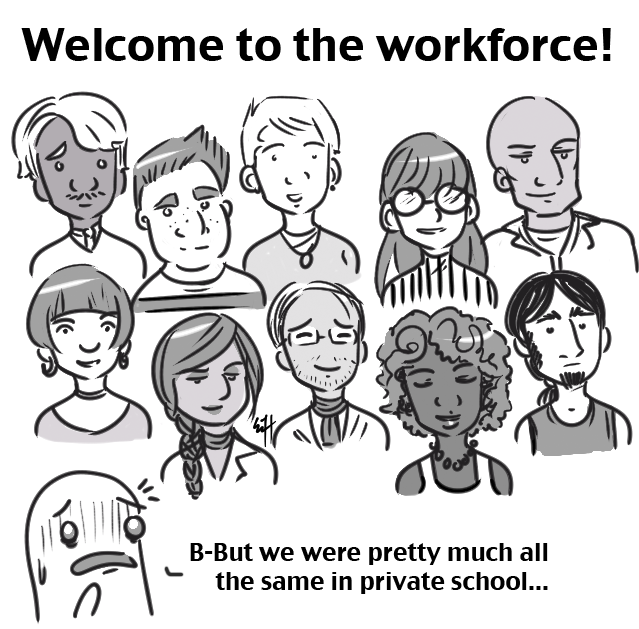As an education major, I believe that getting a good K-12 education in the United States does not require attending private school.
There are 49.8 million students enrolled in public elementary and secondary education in the United States in 2014. I was one of the millions of students in public school growing up, and felt that I got the best education that I could.
Coming to college, for the first time I was exposed to a multitude of peers who did not experience public education, and in fact, had pretty strong opinions on the inferiority of it.
I don’t agree with the stereotypes presented about public schools. I attended one of the poorest schools in Wake County and I was never a victim of violence or unsafe conditions. I feel there is an inaccurate portrayal of public school in the media, movies and in the many documentaries I’ve watched about education in the United States.
Aside from wanting to get a more religious education, I don’t see the educational difference between private and public school. Yes, in most cases, in a private school there is a better student-to-teacher ratio, which can make it easier to be successful. However, public school teachers face stricter certification regulations and more frequent professional development and oversight.
Regardless of all this, I don’t think the value of a public education lies in the curriculum.
Students that attend college after public school, I argue, are better prepared. These students often faced overcrowded classrooms, negligent school counselors, sometimes little support from parents and are forced among a diverse community. Flourishing despite sometimes difficult circumstances in a classroom causes a student to appreciate their success more and teaches them to work harder even in the face of adversity.
Diversity, I believe, is the primary advantage of a public education. Of those 49.8 million, more than half are minority students, and socioeconomically, students come from families with a wide variation in income.
This prepares students for the realities of life after graduation. Being exposed to diversity and having peers from a wide range of situations helps to encourage humility in the lucky and advantaged students, and encourages success from the more disadvantaged students.
According to data provided by the Pew Research Center, there is a rapid demographic shift in public education from the 1990’s and projected until 2022 from a majority of white students to a majority of minority students. This shift mirrors a similar demographic shift occurring in the U.S. as a whole. Our population now consists of many more individuals from minorities than ever before. This makes exposure to diversity in early years that much more important for kids in the U.S.
The exposure to diversity in public education gives students a perspective on life and a keen social awareness that I believe even the best private school cannot.
I believe that we need to support our country’s public education because public education will pull kids out of poverty and gives the 49.8 million students enrolled the tools to be successful and productive citizens.
In the headlines today, we only see the harmful things in education such as decreased funding, drop-out rates and low teacher pay. When are we going to begin seeing all the great things that public education is doing? When are we going to see all the success stories and the amazing heights a public education enabled a disadvantaged student to achieve?
We need to emphasize the good in public education. The right to a free education should be supported and glorified, not put down by being called inferior. Many students in the U.S. only have one choice, and this is going to public school. Neglecting public schools will ensure significant social stratification because wealthier students simply have more options.
I think that students should have an invested interest in the well-being of public education in the U.S. It does affect every single person on campus whether they went to a private or public institution before college. The people receiving public school education are your friends, coworkers, future bosses, employees, lawmakers and yes even our future children. As a society, we need to reevaluate how we value public education.








